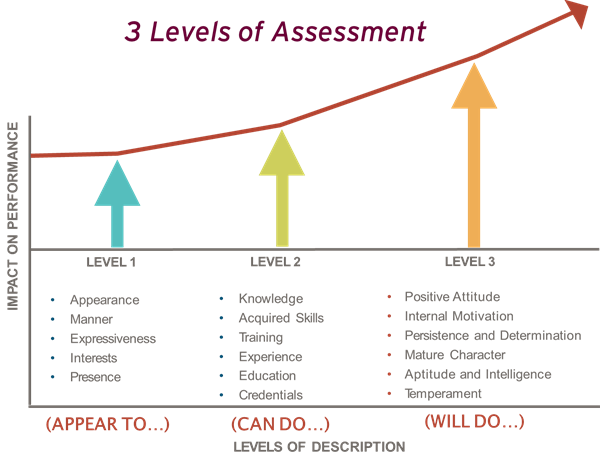Employers base 70-90% of hiring decisions on the interview, yet interviews have only a 14% accuracy rate for predicting performance. Here's how to hire candidates who won't leave in six months.
You put the word out that you need a new producer and receive a slew of resumes. You scan the list and find a handful that might have what it takes to grow your book. After interviewing, you choose one that stands out. The candidate looks great on paper, has all the right experience, says all the right things and seems eager to get started.
Six months later, they leave.
Does this scenario sound familiar?
It’s not a unique situation, even beyond insurance. Sales roles are some of the toughest to fill, but here’s a little secret: You’re probably going about it the wrong way.
According to research, employers base 70-90% of hiring decisions on the interview. The problem is interviews have only a 14% accuracy rate for predicting future performance. Of course, you shouldn’t forgo the interview, but you should weigh other options in order to make a better hiring decision. Here’s what to keep in mind.
Measuring Candidates

The first step in better assessing potential hires is understanding what to look for. Hiring managers tend to look at qualities in steps, including:
Level 1: the first impression. It’s based on appearance, mannerisms, expressiveness and presence. It’s not particularly valuable, but we can’t help making judgments using it—it happens subconsciously.
Level 2: the resume. From learned skills to experience, education and credentials, these elements compose what we call the “can do” level because they tell you what someone says they can do—but not what they will do once they start working for you.
Level 3: temperament. A person’s attitudes, beliefs and capacity for learning tell you the most about future performance—what they will do. Consider some of the characteristics this level uncovers for you and think about them in terms of assessing a successful producer.
Preparing for the Interview
Now that you know what to look for, use that knowledge in an interview process that actually works. Conducting interviews that enable you to find and hire successful producers begins before you ever look at a resume.
Step 1: Define the job. Consider and document all the Level 2 and 3 requirements for success in the role. What is necessary, and what’s a nice to have? Create a target you will use to measure all candidates.
Step 2: Assess the candidates. Use that profile to separate the wheat from the chaff. Recommended methods include:
- Reviewing resumes for minimum Level 2 criteria and developing an interview strategy.
- Conducting telephone screening interviews.
- Assigning pre-employment personality tests to your short list.
- Conducting face-to-face interviews.
- Conducting follow-up interviews.
- Checking references.
Step 3: Document and decide. Compare all your documented results from assessments, interview notes and reference checks against the original target profile you created—and check your gut. Then choose the candidate that most closely matches your criteria.
Conducting the Interview
To ensure you get at those Level 3 criteria, ask behavioral interview questions, like, “Tell me about a time when you had to go above and beyond to gain a client. What was the end result?”
These types of questions will pull out specific examples of past behavior, which is the best indicator of how they’ll behave in the future. The questions you ask will be role-specific, but you should also customize them to each candidate based on the concerns that arose during your resume review and screening interviews.
The McQuaig System provides customized behavioral interview questions for each candidate who completes a pre-employment test, but you can also do it yourself with a little more work. Pick a Level 3 trait and consider how a successful producer might use it on the job, and then turn those desired actions into questions. If you’ve got a long sales cycle and you’re not sure if this candidate has the determination to keep on prospects, ask something like: “How did you handle a prospect whom you felt needed your product, but wasn’t responding to your calls?”
Asking the right questions is just half the battle. If you ask a question and move on to the next, you’re missing the boat. If you don’t get the information you want from a response, follow up and make sure you do. Effective probing is critical for successful interviewing.
And don’t skip the final piece of the interview strategy: consistency. You need a documented process for each candidate. Don’t cut corners. Don’t change the hiring team players for each candidate. Consistency is critical for comparing apples to apples.
Kristen Harcourt is a senior consultant with The McQuaig Institute, which for more than 50 years has provided simple, accurate behavioral assessments to help companies hire, retain and develop the right people the right way.
